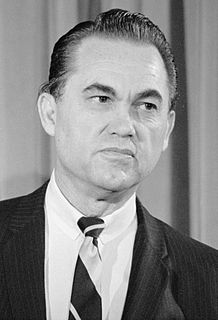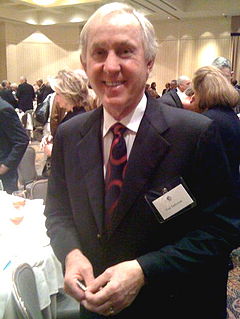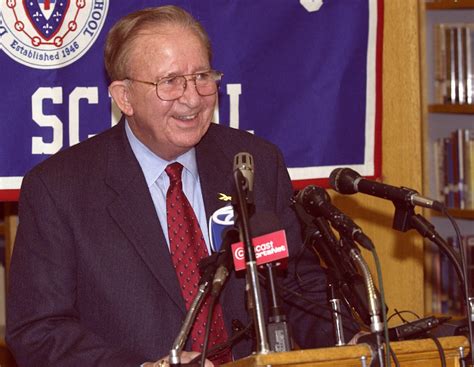A Quote by George Wallace
The average citizen in this county has more intelligence and sense in his little finger than the editor of 'The New York Times' has in his whole head.
Related Quotes
To blindly trust government is to automatically vest it with excessive power. To distrust government is simply to trust humanity - to trust in the ability of average people to peacefully, productively coexist without some official policing their every move. The State is merely another human institution - less creative than Microsoft, less reliable than Federal Express, less responsible than the average farmer husbanding his land, and less prudent than the average citizen spending his own paycheck.
A citizen at his home in Rockford, Illinois, or Boulder, Colorado, could read a newspaper, listen to a radio, or watch the round-the-clock coverage on television, but he had no way of connecting with those who shared his views. Nor was there a quick, readily available tool for an ordinary citizen to gather information on his own. In 1960, communication was a one-way street, and information was fundamentally inaccessible. The whole idea of summoning up data or reaching thousands of individuals with the touch of a finger was a science-fiction fantasy.
It is interesting to observe that in the year 1935 the average individual's incurious attitude towards the phenomenon of the State is precisely what his attitude was toward the phenomenon of the Church in the year, say, 1500. It does not appear to have occurred to the Church-citizen of that day, any more than it occurs to the State-citizen of the present, to ask what sort of institution it was that claimed his allegiance.
You are the real teachers. You have these children when they are at their emotional peaks and lows. That's when they are the most pliable. It doesn't take any intelligence to send a kid home with his head hanging between his knees. But to send him home with his head up every night might show a little coaching.
The New York Times will tell you what is going on in Afghanistan or the Horn of Africa. But it is no exaggeration that The New York Times has more people in India than they have in Brooklyn. Brooklyn is a borough of two million people. They're not a Bloomingdale's people, not trendy, sophisticated, the quiche and Volvo set. The New York Times does not serve those people.
I will make an average man into an average dancer, provided he be passably well made. I will teach him how to move his arms and legs, to turn his head. I will give him steadiness, brilliancy and speed; but I cannot endow him with that fire and intelligence, those graces and that expression of feeling which is the soul of true pantomime.
The notion that a radical is one who hates his country is naïve and usually idiotic. He is, more likely, one who likes his country more than the rest of us, and is thus more disturbed than the rest of us when he sees it debauched. He is not a bad citizen turning to crime; he is a good citizen driven to despair.


































